Best electronic drum pads 2025: Top drum and percussion pads for the studio and stage
Explore a world of sound with the best electronic drum pads around, from Roland, Yamaha, Alesis and Nord
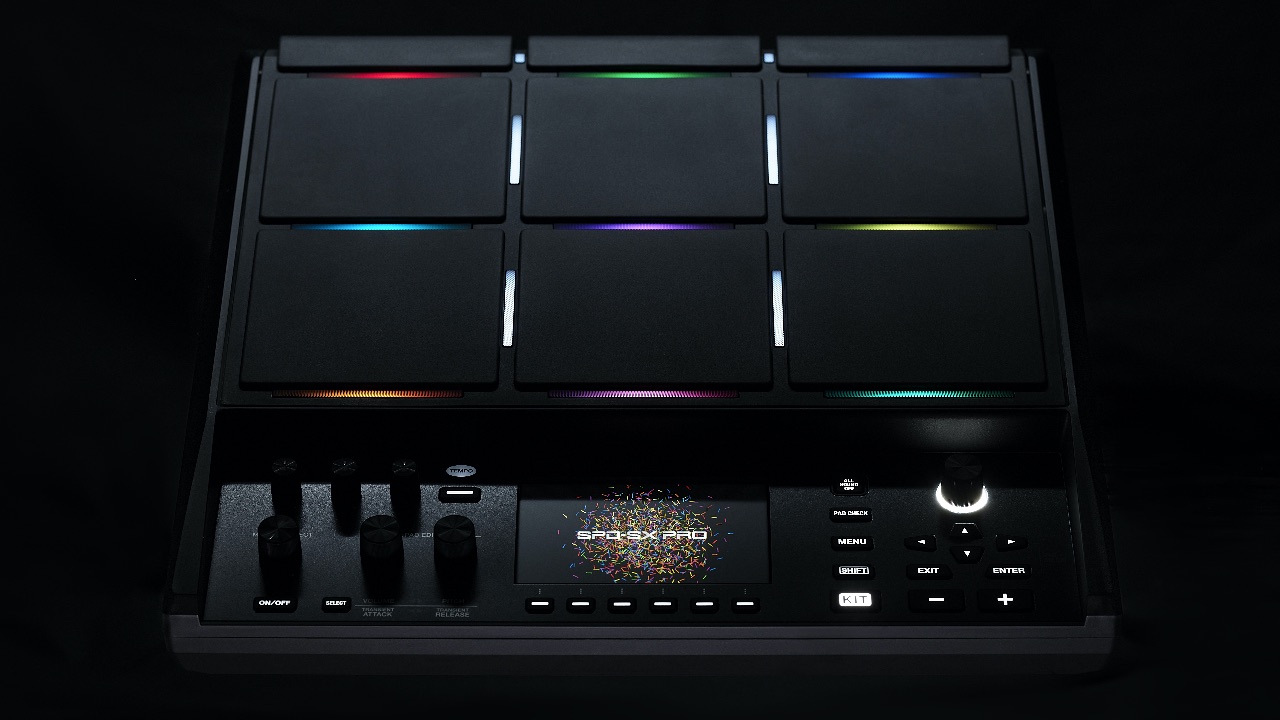
Electronic drum pads are a concept that has revolutionised the drumming world. In a nutshell, you strike the on-board rubber pads to trigger pre-recorded audio samples, synthesized drum sounds and backing tracks. But there’s so much more to them than that, and their vast array of sonic possibilities has made them almost indispensable on the live circuit; on the world's biggest stage you’ll regularly find one of the best electronic drum pads nestled amongst the drummer’s toms or beside the hi-hat.
The emergence of hybrid drumming – that is merging acoustic and electronic drums to enhance and expand your sound – has meant everyone from bedroom players to pro drummers are looking for electronic elements to add to their kits. Some opt for an array of triggers or individual pads positioned around the kit, whereas others prefer a more economical approach in terms of space, convenience and affordability. That’s where the best electronic drum pads in this guide come in.
In general, drum pads are popular with drummers and percussionists, but rhythmically-minded producers and DJs have found homes for them in their studios too, since they also work a treat as MIDI controllers. Some pads can also be configured into a mini-drum kit by adding auxiliary kick and hi-hat pedals, making them excellent tools for practicing or busking.
Best electronics drum pads: MusicRadar’s Choice
At the very top of the list we’ve got the Roland SPD-SX Pro because of its intuitive design, high quality playback and unmatched durability. There are three modles in the SPD-SX range, but the Pro edition is the one to go for here, as it includes 32GB of storage, customisable LEDs for each pad, loads of sounds on board and a powerful multi-effect engine. If you’re looking for an instrument to trigger any sound - not just percussion - this is the pad for you.
Alternatively, the Roland Octapad SPD-30 (Version 2) is the best available percussion pad. There are 99 kits available, spanning high quality electronic drum sounds to all manner of world music instruments. The pad-sensing technology comes from Roland’s V-Drums, which enables unmatched realism in terms of playing feel and excellent isolation between pads.
Special mention must also go to the Alesis Strike MultiPad. This is the best electronic drum pad for those who need both sampling and percussive functions of the highest order. It features 32GB internal memory for your bespoke sounds, with over 8,000 from their own sound library, customisable lights and a whole host of other great features.
Best electronic drum pads: Product guide
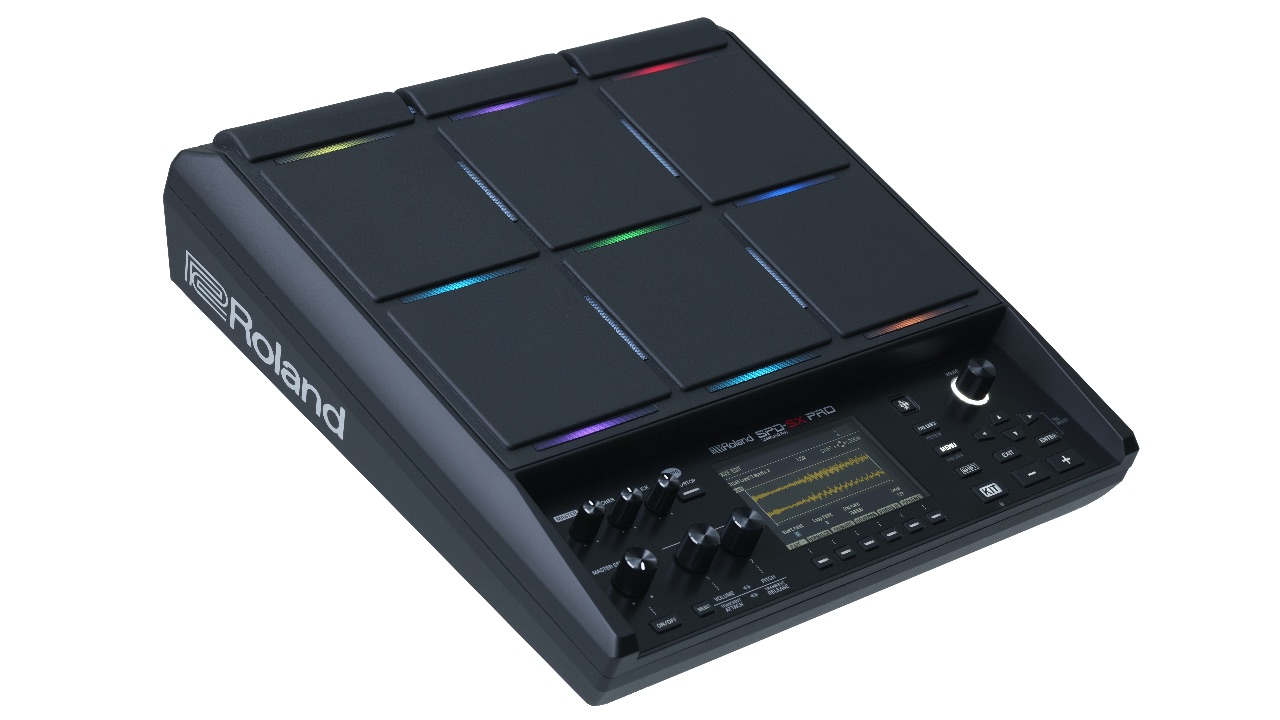
Specifications
Reasons to buy
Reasons to avoid
The Roland SPD-SX quickly became the industry standard for triggering loops, samples and backing tracks. It’s easy to see how this status was earned, and now the new Pro model has taken things to a whole other level.
To the untrained eye, the Pro model looks an awful lot like the standard SPD-SX, but there have been some significant cosmetic and performance enhancements that have earned it the ‘pro’ moniker. Firstly - and most obviously - are the customisable LEDs for each pad, which make it easier to navigate the pads in low stage light, and help you more easily identify which samples have been assigned to which pad.
On-board storage is now a massive 32GB, which is double that of the SPD-SX Special Edition (keep reading for more on that), and there’s more than 1,500 kits and sounds built into each unit, covering a range of sounds and styles.
Also new to the Pro is a desktop app that enables full control of your unit, so you can assign samples to pads, apply effects and so much more without having to deep dive through endless menus and button pushes.Prepping for your next gig has never been easier.
Other nice additions include a crisp 4.3” colour screen, four direct outputs for separate outputting of individual pads, effects or click tracks and an on-board 16 step sequencer.
If you're not sure whether to upgrade your SPD-SX, or whether you spend the extra on the SPD-SX Pro, our comparison piece will help answer all your key questions.
Read the full Roland SPD-SX Pro review
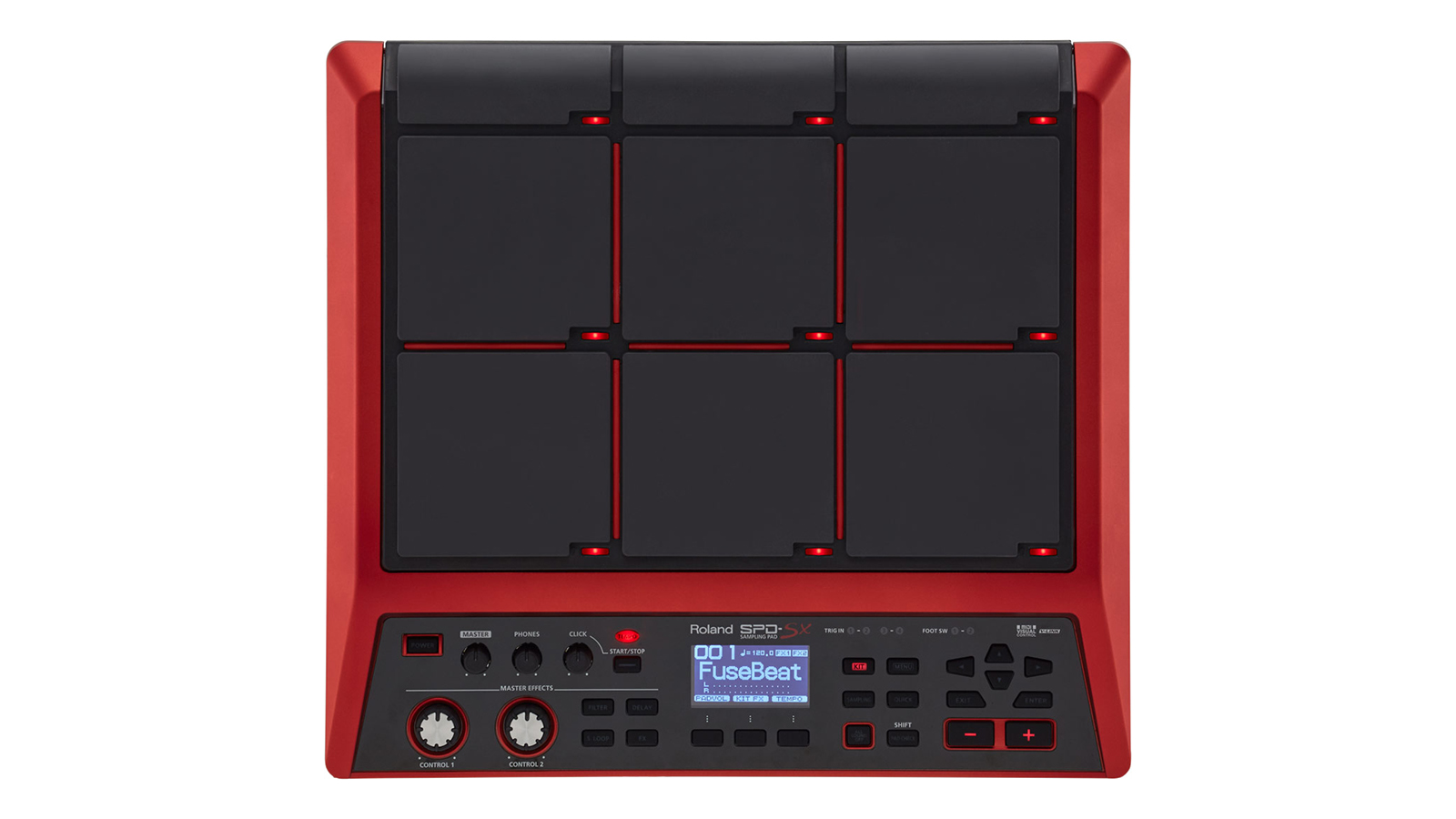
Specifications
Reasons to buy
Reasons to avoid
If the Pro model is a bit rich for your blood, there’s still plenty to love about the red ‘Special Edition’ of the original SPD-SX, which features a hefty 16GB of storage space and is currently a decent chunk cheaper than the new pro model.
With 100 on-board drum kits and a whole host of excellent effects, it sounds great out of the box. Then on top of this you have the multi-pad sampling function, which is where the SPD-SX truly comes into its own. With an external audio source plugged in (like your phone), you can record samples directly onto each individual pad and splice them up in real time, by starting/stopping the sample-recorder with one hit.
There are other pads with qualities this module doesn’t have, but overall the Roland SPD-SX ‘Special Edition’ is amongst the best of the best. The combination of high build quality, intuitive design and excellent functionality means this is a great alternative to the Pro model.
Read the full Roland SPD-SX Special Edition review
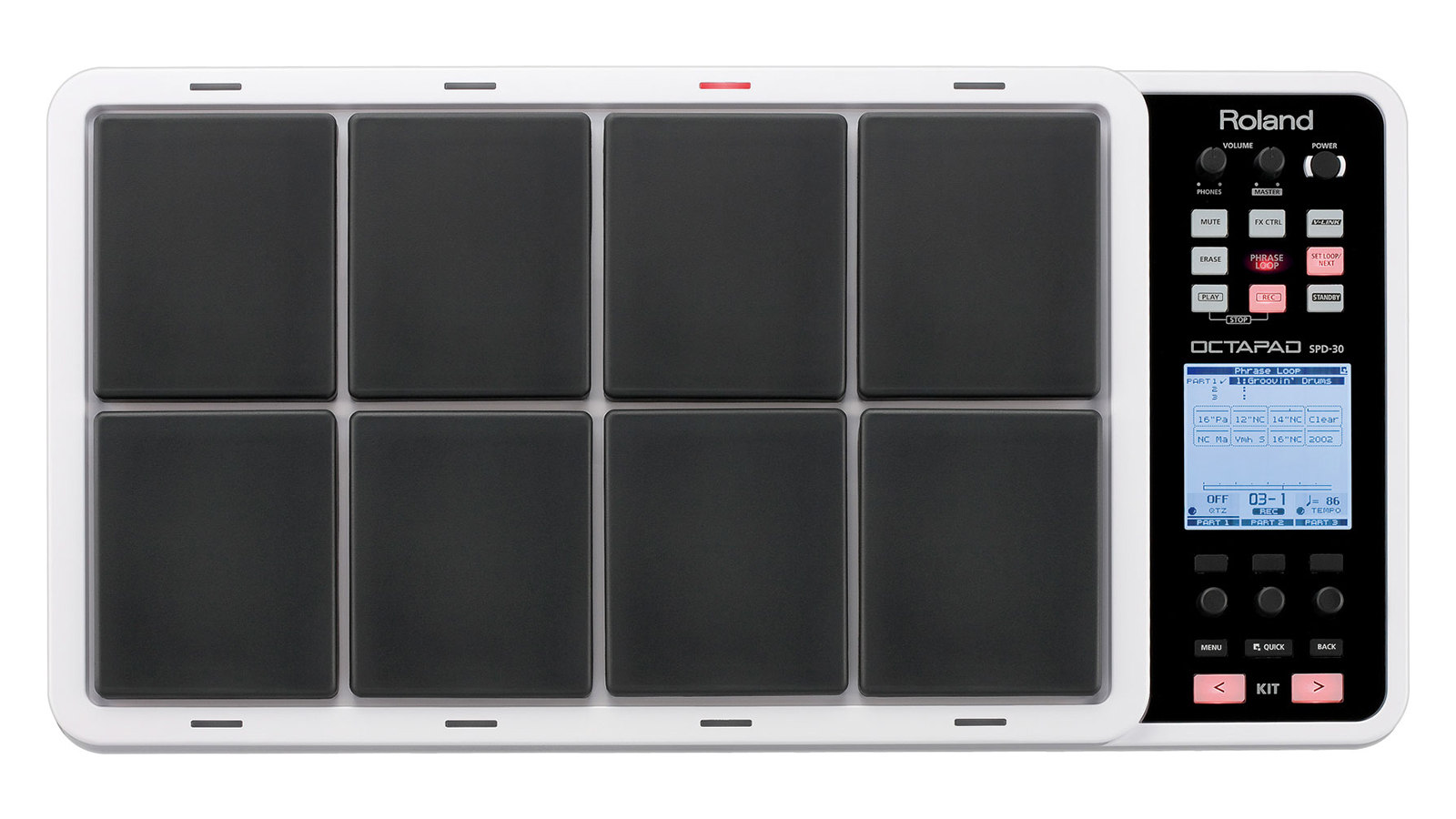
Specifications
Reasons to buy
Reasons to avoid
If you’re looking for something specifically to create high quality, unique drum and percussion sounds, look no further. The Octapad features 670 built-in sounds, from drum kits and world percussion to various FX and samples.
With the phrase looper you can record yourself playing loops in real time and overdub up to three layers. This function is perfect for creating tracks from the ground up in a live scenario, as well as practicing. With 4 dual-trigger inputs, the Octapad is the perfect module for use as a mini-kit.
The pads themselves benefit from patented V-Drum sensitivity, giving them an excellent feel and unmatched isolation. All in all, the Octapad is a very impressive piece of kit. Aimed squarely at those looking for drums and percussion sounds, it does the job better than anyone else.
Read the full Roland SPD-30 Octapad review
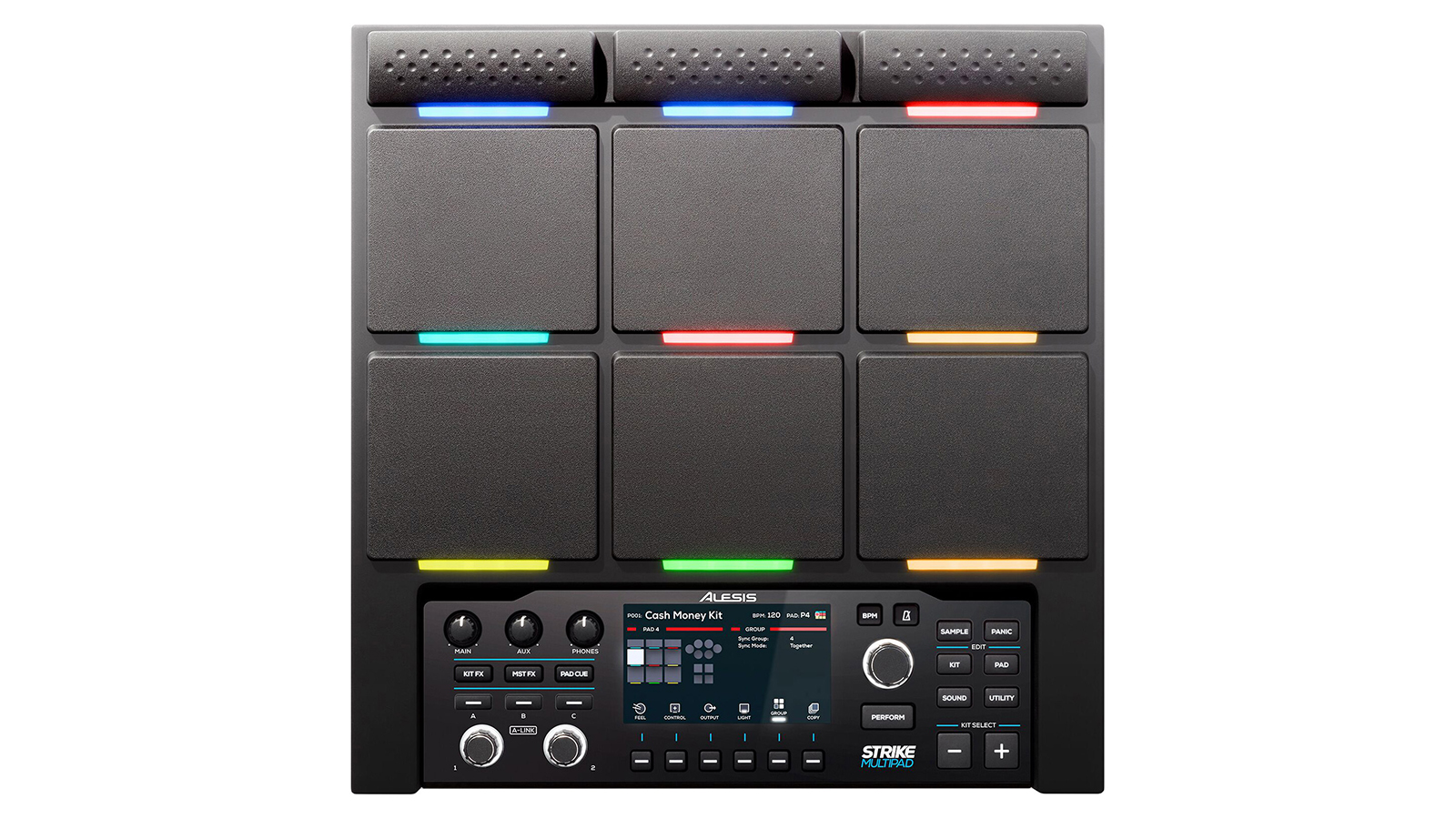
Specifications
Reasons to buy
Reasons to avoid
If versatility is what you’re after, check out the Strike MultiPad from Alesis. It offers 32GB of storage space, over 8,000 sounds, sampling and looping capabilities.
The sampling function works well and it’s easy to edit audio directly on the console. The looper is also fun and allows for phrases of up to 16 bars. There are some other helpful features such as the 4.3” colour screen and front-facing headphone jack, but one of the coolest is the RGB lights. They are fully customisable visual indicators which can be used to reflect tempo, drum or loop assignments, sample duration and much more.
When compared to options from Roland or Nord, some of the on-board sounds are a little unsophisticated, and we experienced some awkwardly long loading times when switching between functions. While this is not too much of a problem at home, this could potentially waste precious seconds on stage.
Overall though, this is one of the best all-rounder pads out there, with impressive functionality and features.
Read the full Alesis Strike Mulipad review
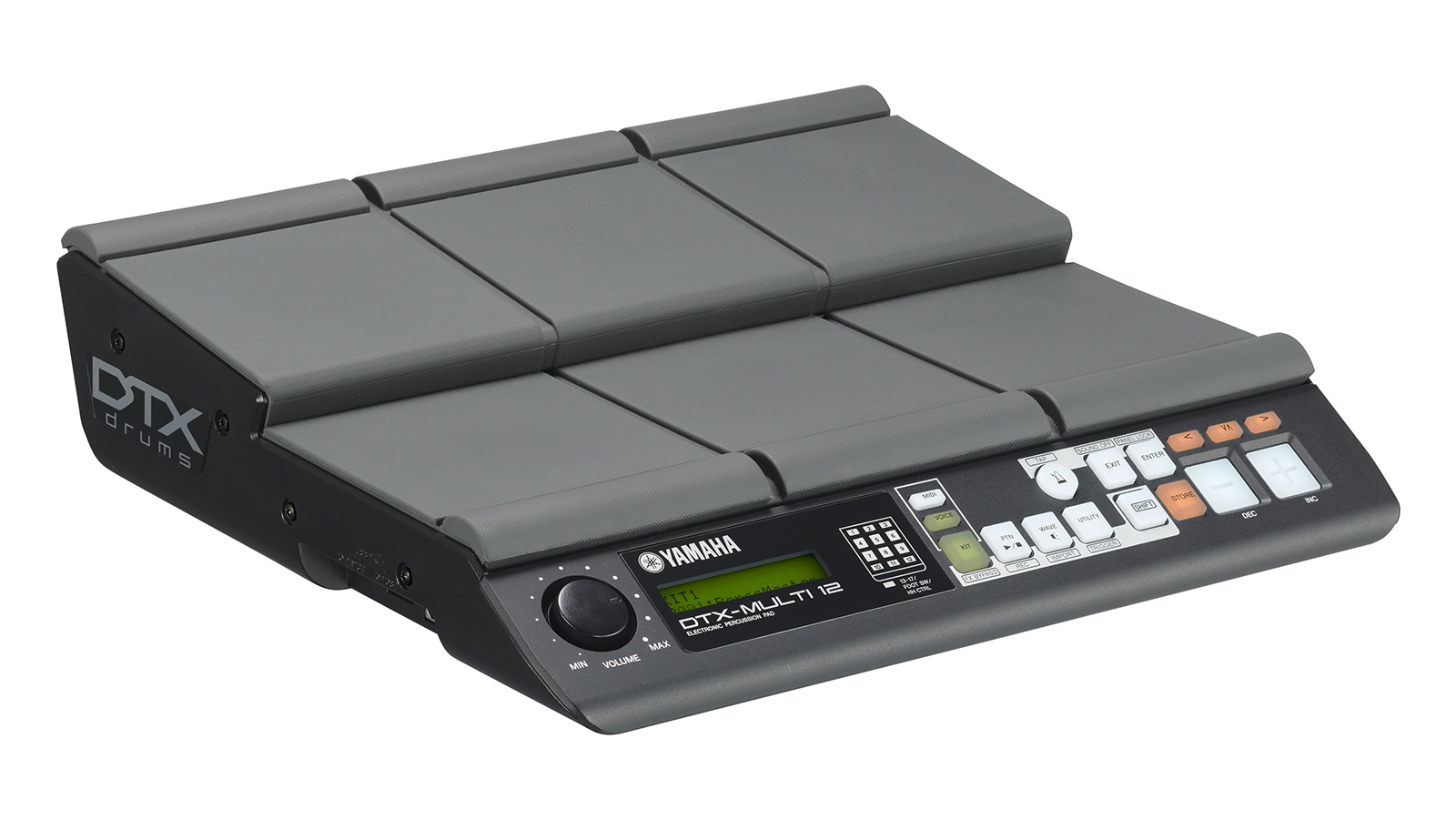
Specifications
Reasons to buy
Reasons to avoid
There are many things to love about the Yamaha DTX Multi-12. Firstly it features – as the name suggests – 12 pads, laid out in an ergonomically-pleasing ‘stepped’ format. These pads also support finger and hand drumming and are fully mutable, which gives a much more realistic play-feel.
On-board the module there are 1,277 sounds, all of the high quality we’ve come to expect from Yamaha. These include world percussion, various keyboards, FX and naturally, lots and lots of drum kits. Further customisation is possible via the iOS ‘Touch’ app.
The term ‘multi-pad’ might be a little misleading here, though, as the DTX Multi-12 has so little memory – and very strict parameters for sample capacity – that using it to trigger loops and long samples is simply not possible. Overall, it makes an excellent percussion pad and would be perfect for anyone looking for a vast toolbox of sounds and a realistic playing feel.
Read the full Yamaha DTX Multi-12 review
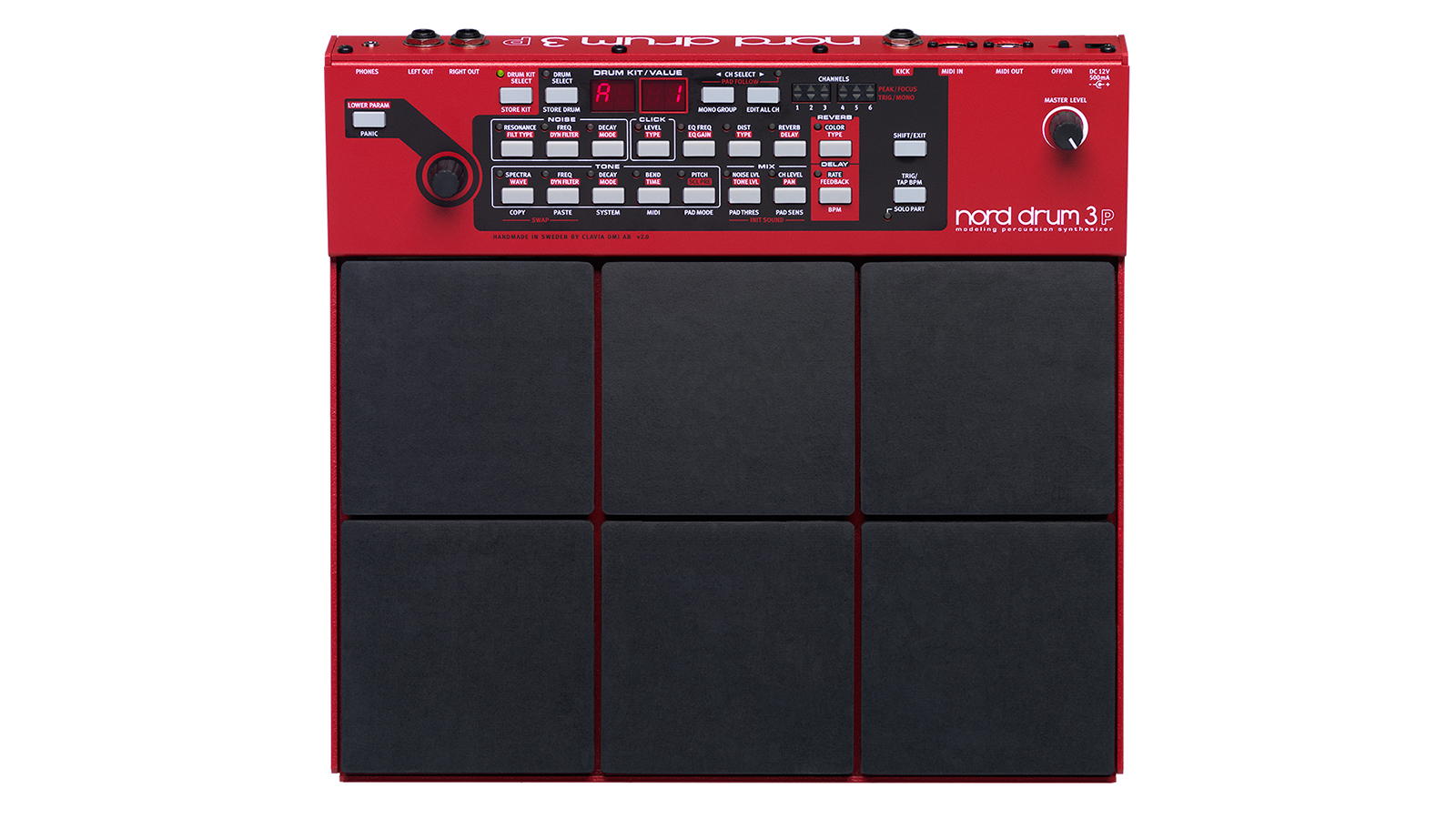
Specifications
Reasons to buy
Reasons to avoid
Let’s get this out of the way quickly: the Nord Drum 3P is a synthesizer. Sure, it’s played with drumsticks and is focussed on percussion, but this product is geared directly towards lovers of Kraftwerk, button pushing and knob twiddling. If you’re looking for something to trigger your own samples and backing tracks, you’ll need to go elsewhere.
Still with us? Okay, let’s get into it. With the exceptional high quality we’ve come to expect from Nord, the 3P displays a vast array of sonic capabilities. It has 200 sounds and a large variety of modulators, oscillators, reverbs, filters and various other FX on-board. You can use these to alter specific aspects of each sound and save them as your own in one of the 400 available banks. There is also a sequencer app for iOS, called Nord Beat, which will make beat-makers and producers feel at home.
The six rubber pads are smooth, responsive and a joy to play. The unit comes in at a modest 4lbs (1.85kg) but feels sturdy and road-ready. The downside to the Nord Drum 3P is that it’s priced relatively high when you consider what you can do with it. However, what they are offering is a high quality drum synthesizer for use in live and studio environments.
Read the full Nord Drum 3P review
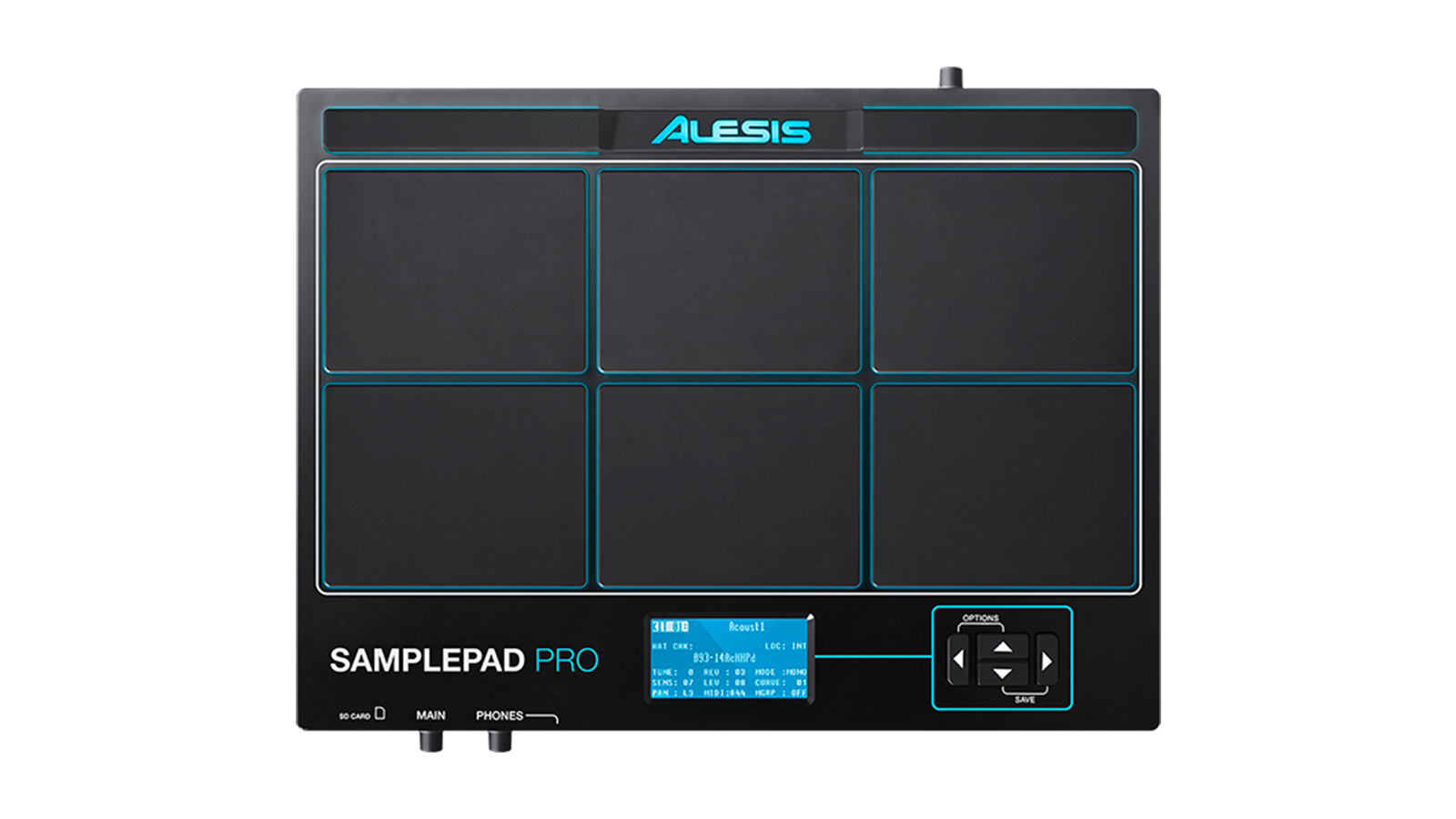
Specifications
Reasons to buy
Reasons to avoid
The Alesis Samplepad Pro is the perfect entry point into using sample pads. It doesn’t come with any on-board storage but it does come with over 200 pre-set sounds and a slot for a 32GB SD card, which can be loaded with up to 512 of your own sounds.
The chassis is lightweight and the 8 rubber pads are comfortable to play – albeit a little on the dead side. One of the main gripes is that we experienced some quite severe crosstalk between pads. Despite this and a few teething problems getting used to the menu buttons, the SamplePad Pro is relatively easy to use.
With an SD card inside, it functions well as a sample trigger module. All in all, the Alesis Samplepad Pro would be perfect for anyone looking for a nice addition to their home studio, or just a beginner on a budget who is looking to get stuck into the world of sample pads.
Read the full Alesis SamplePad Pro review
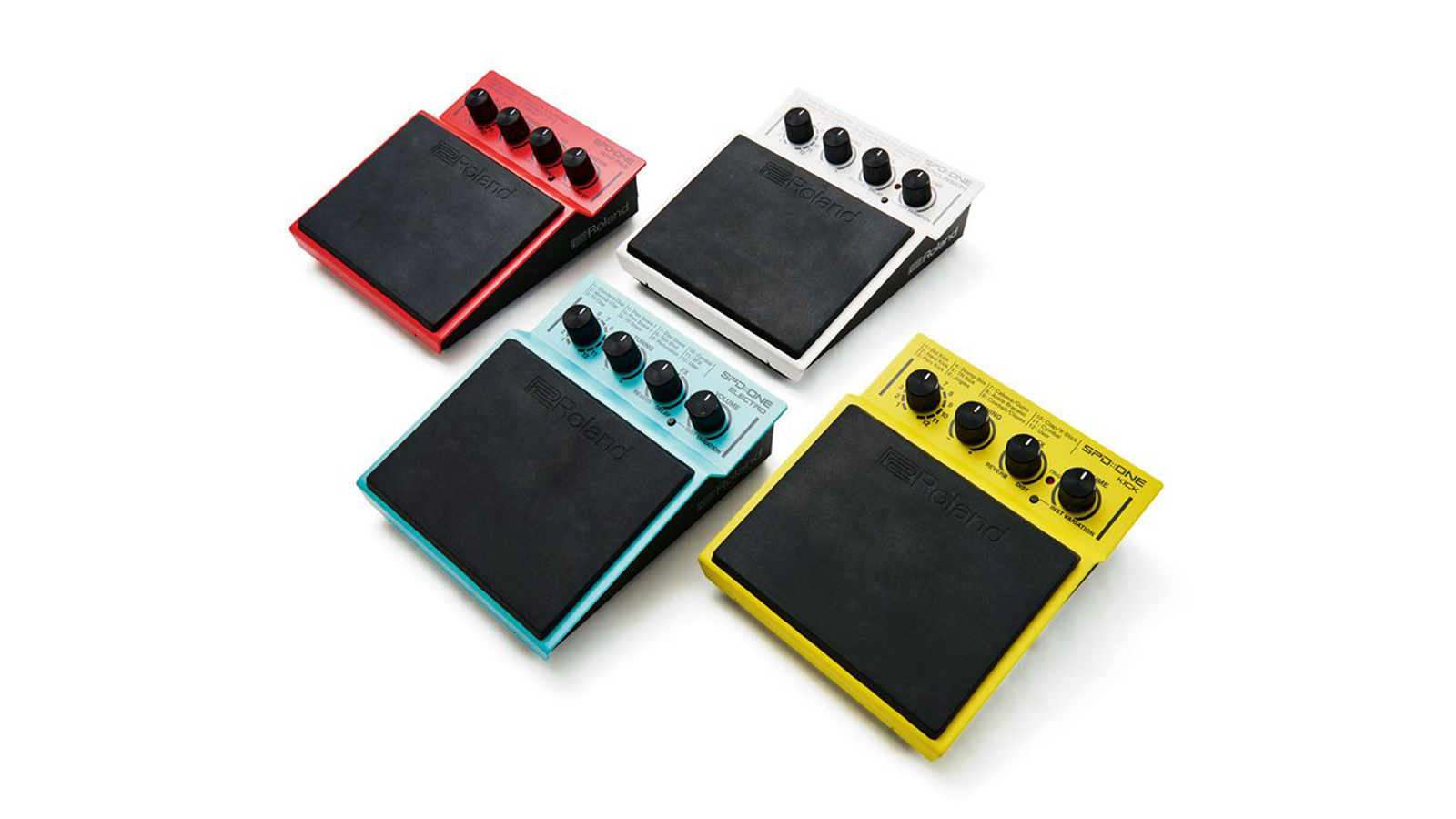
Specifications
Reasons to buy
Reasons to avoid
The Roland SPD::One series is a curveball, that’s for sure (why the second colon?). The series is made up of four individual units, each with a specific function. They’re a little over-priced and they don’t have line-inputs, yet there’s plenty to love here.
Each of the four variations serves its own sonic purpose. The Kick and Percussion models do what you’d expect, while the Electro is essentially a drum pad loaded with snares, rim shots, claps and cymbals. Each of these pads also has one ‘user’ assignable slot, for a sample of your own. They also support hand, finger and even foot drumming, which is excellent for gigging percussionists.
The SPD::One Wav is perhaps the most useful - albeit slightly more costly - of the group. It has 4GB internal storage and 12 assignable slots, meaning you can use this as a fully functioning, fully customisable sample pad. Overall, these are nifty little pieces of gear, despite the relatively high outlay.
Read the full Roland SPD::ONE Series Pads review
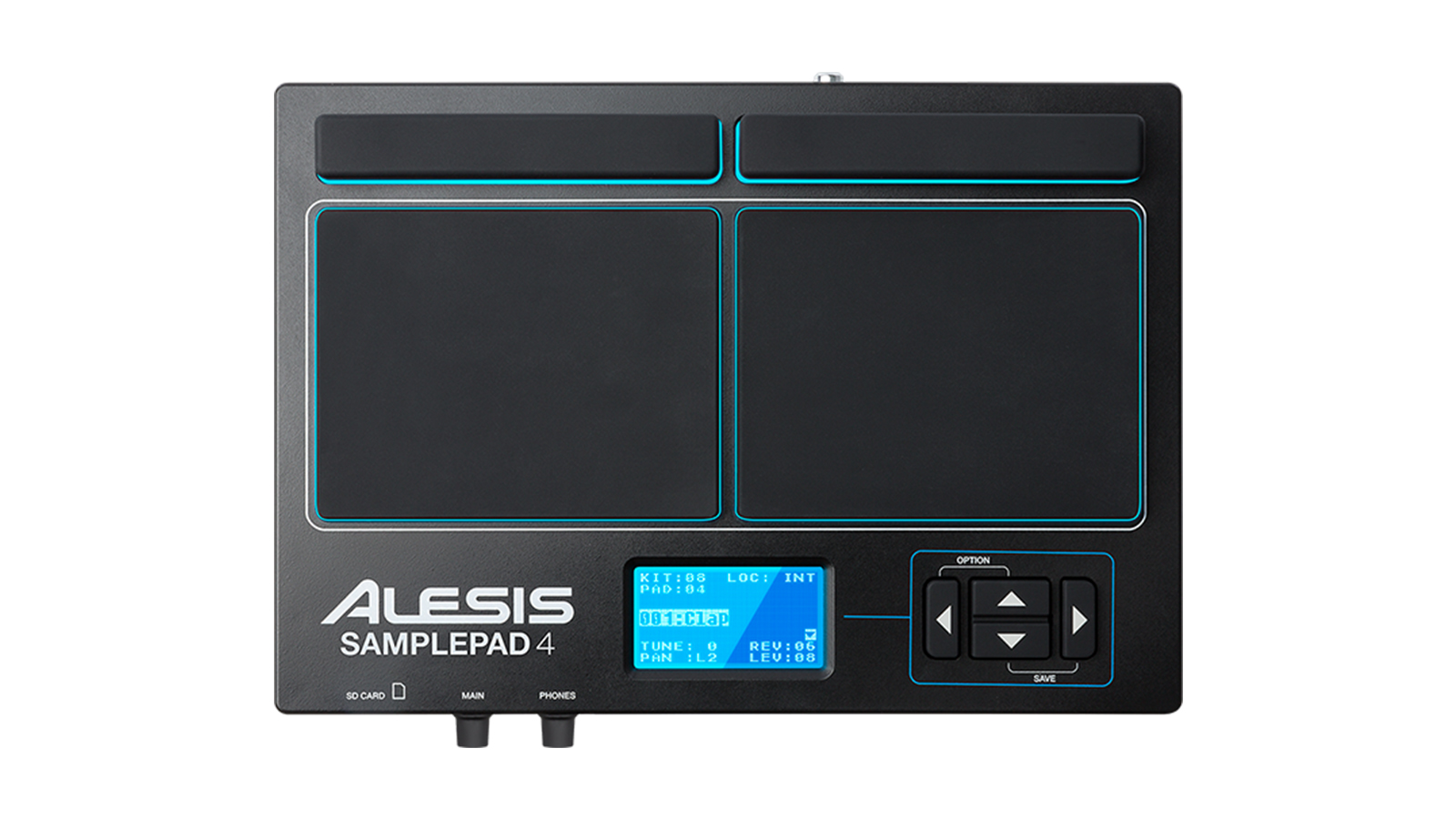
Specifications
Reasons to buy
Reasons to avoid
The Alesis Samplepad 4 is perfect for anyone interested in triggering samples and electronic drum sounds, but not married to the idea. It has 4 pads made from comfortable, sturdy rubber and a solid chassis.
The 25 on-board sounds and 10 kits are great for those new to electronic percussion, but won’t be winning over any EDM producers. The loop facility is hours of fun and pad control mode is very helpful. At this price, the ability to upload, trigger and mess around with your own samples is pretty awesome too.
Crosstalk between pads and long load times make it less suitable for serious touring, but that doesn’t mean you shouldn’t consider it for your home studio or for smaller gigs where you’re less reliant on electronics. With such a small footprint and low price, this SamplePad 4 would also be excellent for use as a midi trigger with a DAW.
Read the full Alesis SamplePad 4 review
Best electronics drum pads: Buying advice
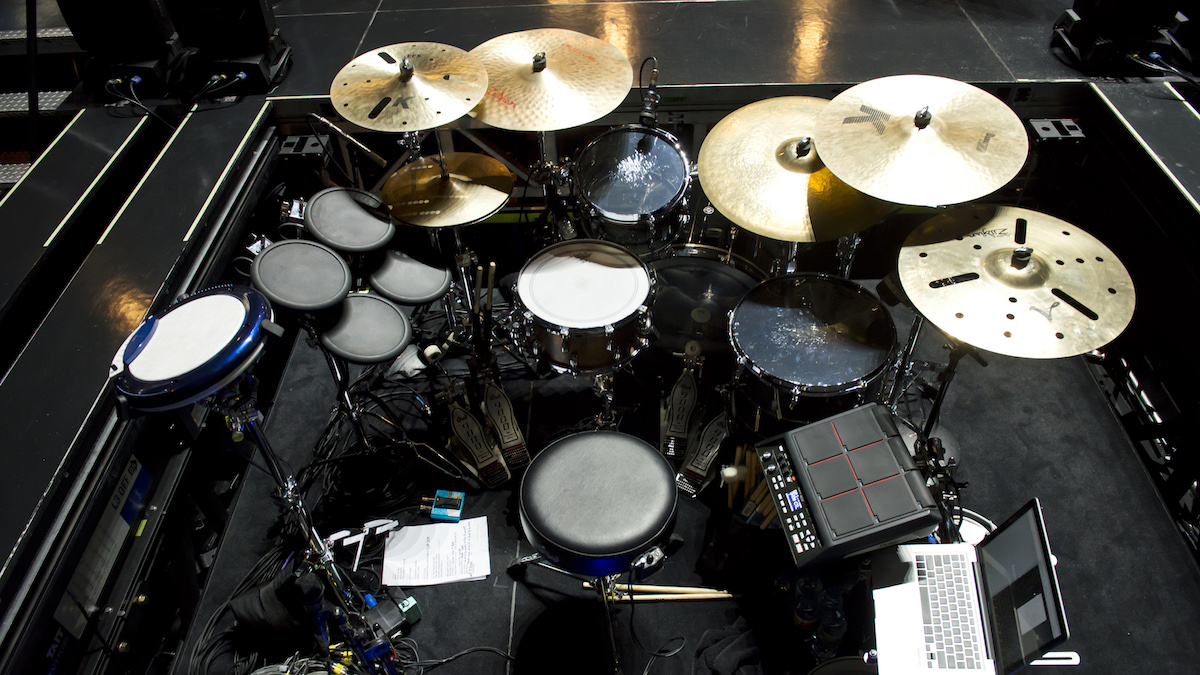
How to choose the best electronic drum pads for you
MusicRadar's got your back
An electronic drum pad is essentially a small, self-contained computer module - or ‘brain’ - with playable rubber pads on top of it (as opposed to an electronic drum set where the module is separate from the pads). As we’ve established, they’re typically used to play sounds, loops and samples. Typically they also feature a backlit screen, button controls, LED lights, a sturdy chassis and some form of mounting system to keep it in position. They will have jacks for connecting to audio devices, as well as USB and MIDI connectivity.
Common internal features include a bank of on-board sounds (usually instrument samples), sound-triggering capabilities, FX such as reverb and delay, a click track, looping and layering functions and velocity controls. More specific features will be determined by the products’ intended use, such as sample recording, on-board audio editing, various types of wave modulation and more detailed FX.
Depending on the type of pad, the predominant functions can be vastly different. Before investing it’s important to know the subtleties between the pads on offer, so you can accurately choose which best suits your needs. Generally speaking there are sample pads, percussion pads and drum synthesizers, all usually listed under the term ‘drum pad’ or ‘multipad’, so let’s take a closer look.
What is a sample pad?
A sample pad will allow you to trigger on-board sounds or ‘sampled audio’ - along with files you’ve recorded or uploaded yourself - and integrate them into your setup however you see fit. Pre-loaded kits can often be erased to make space for your own bespoke sounds.
Say you’ve identified a particular ambient bird sound from your bedroom window that really adds to the feel of one of your songs. You would record it and program into the pad so that you can then trigger it live, without having to move from the kit. Perhaps you also want a choral part to play over the bridge of a particular song? Queue it up on pad two and, when the bridge rolls round, you can summon those angels with a strike of the assigned pad.
Essentially, a sample pad can be used as a drum machine, trigger module, backing track generator or a multitude of other tools. Think of it as a Swiss Army Knife for incorporating electronic elements into live music.
What is a percussion pad?
A percussion pad will not allow you to import samples, however it will be loaded with - as the name suggests - a multitude of drum and percussion sounds, along with tools to colour and manipulate them. If a sample pad is an electronic Swiss Army Knife, think of a percussion pad as a thousand drum kits in a box.
If your playing style is not limited by any genre, investing in a dedicated percussion pad grants you access to pretty much any percussive texture you might need. They generally use digital samples spanning all types of world music and can be set up as a mini-kit, using inputs to connect kick and hi-hat controllers.
They're not just great for drummers either. Perhaps you’re a live DJ with a nice loop going. Why not spice it up by stepping away from the booth and playing a percussion break? You can then add effects and layers to colour it however you want, or loop it to keep the break going while you mix something else.
What is a multipad?
‘Multipad’ is a catch-all term for pads that include multiple functions and quite literally: multiple pads. Each multipad will have different qualities and functions; for example the Alesis Strike MultiPad has a large library as well as 32GB of space for uploading your own samples.
The Yamaha DTX Multi-12 does not offer anywhere near that much space, but it supports finger and hand drumming, with mutable pads, meaning it feels much more realistic to play. Then you’ve got the Nord Drum 3P - also filed under ‘multipad’ - which is a drum synthesizer.
Ultimately, there are pads out there to suit a whole host of different needs, so it’s important to be clear on what specific role it will play within your music creation.
How we chose the best electronic drum pads for this guide
Here at MusicRadar, we are experts in our field, with many years of playing, creating and product testing between us. We live and breathe everything music gear related, and we draw on this knowledge and experience of using products in live, recording and rehearsal scenarios when selecting the products for our guides.
When choosing what we believe to be the best electronic drum pads available right now, we combine our hands-on experience, user reviews and testimonies and engage in lengthy discussions with our editorial colleagues to reach a consensus about the top products in any given category.
First and foremost, we are musicians, and we want other players to find the right product for them. So we take into careful consideration everything from budget to feature set, ease of use and durability to come up with a list of what we can safely say are the best electronic drum pads on the market right now.
Find out more about how we test music gear and services at MusicRadar.
Related buyer's guides
- The best beginner electronic drum sets for newcomers
- Check out the best Roland electronic drum sets
- ...and the best Yamaha electronic drum sets
- Best bass drum pedals: single and double recommendations
- Sharpen your chops with the best drum practice pads
- Show a drummer some love with these ace gifts for drummers
Get the MusicRadar Newsletter
Want all the hottest music and gear news, reviews, deals, features and more, direct to your inbox? Sign up here.
Jai is a drummer and producer, who has worked with Afrika Baby Bam, Jay Z, Tyler the Creator and more. When he's not in the studio or away on tour, Jai writes for MusicRadar, specialising in drums, touring and mental health within the music industry. Outside of music he enjoys coffee, video games, sports and dogs.
